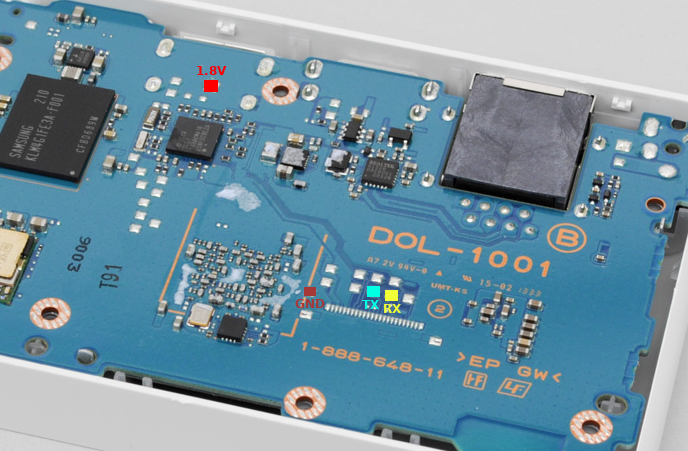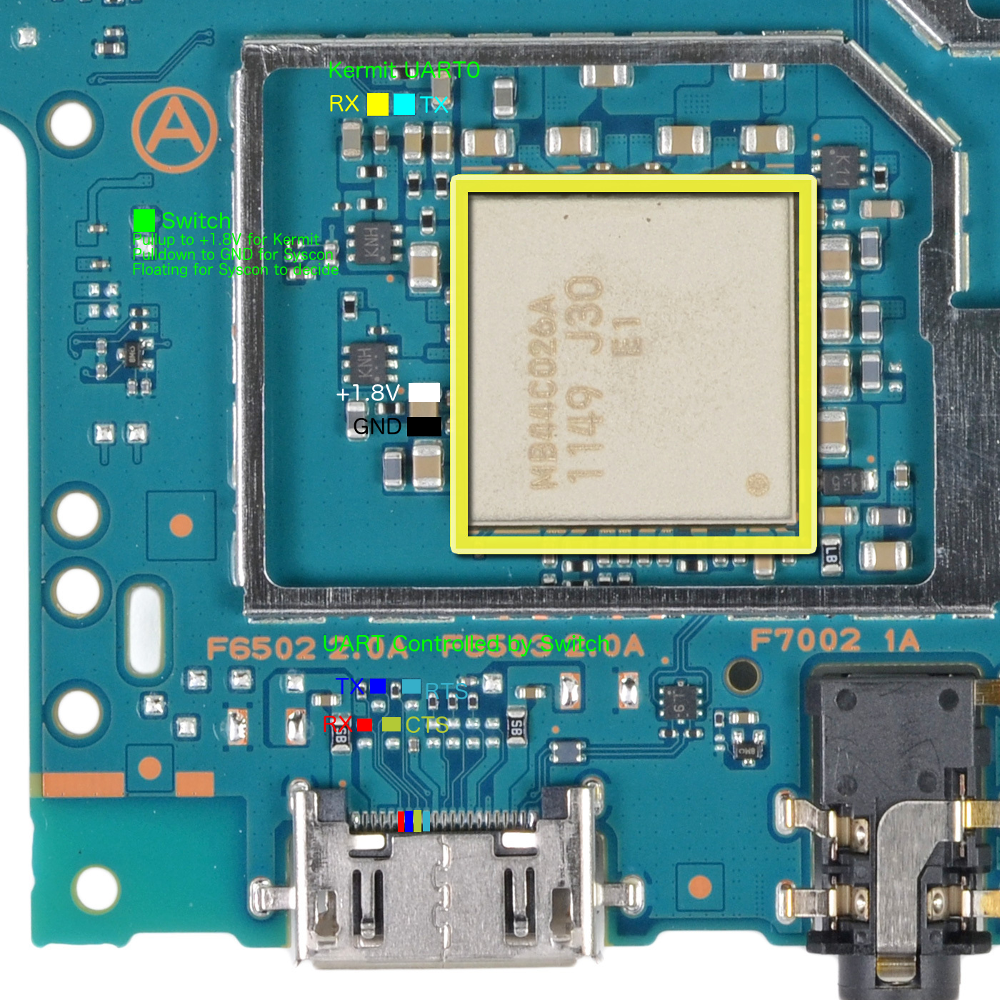UART Console
UART0
The UART0 is a debugging console used by ARM, cMep and Syscon. The logic level is 1.8V.
PSTV UART0 location
OLED PS Vita UART0 location
There are two ways of using UART0:
- First way is to solder directly to the testpads near the PMIC (yellow and cyan points).
- Second way is through the multi-connector or the testpads above it (blue and red points). To use the multi-connector points though, you need either to tell Syscon to select Kermit UART by calling
SceSyscon#sceSysconSetMultiCnPortForDriver(1);, or to manually flip the switch (green point to 1.8V).
The switch is controlled by a TS3A5018 chip and the RTS gate is a TC7WG126FK chip.
UART1
UART1 is a debugging console used by DevKit PS Vita models.
UART1 is pre-initialized by SKBL.
DevKit PS Vita UART1 location
Unknown but guessed to be sent to GCP board (Communication Processor). Communication Processor sends received UART1 data over mini-USB which can be seen on PC in the Console Output for PS Vita program. Communication Processor seems to manage input/output from sdio (mini-USB) at regular intervals.
UART5
The UART5 is a debugging console used for the 3G modem on PS Vita models that have it.
OLED PS Vita UART5 location
It is on the PCI-E connector pins 8,10,12,14 is RFR, CTS, TX, RX.
- On 3G PS Vita units, you can solder to the PCI-E connectors or install yifan lu's PSVSD board.
- On Wifi PS Vita units, you need to fill in the 88ohm termination resistors (or just short the pads) and some way to enable it (not known yet).
UART initialization/deinitialization code
scePervasiveUartClkGateEnableForDriver(port); // Turn on clock
scePervasiveUartResetDisableForDriver(port); // Put out of reset
sceKernelUartInitForKernel(port);
/*
* Use UART port (read/write)
* ...
*/
scePervasiveUartResetEnableForDriver(port); // Put to reset
scePervasiveUartClkGateDisableForDriver(port); // Turn off clock

